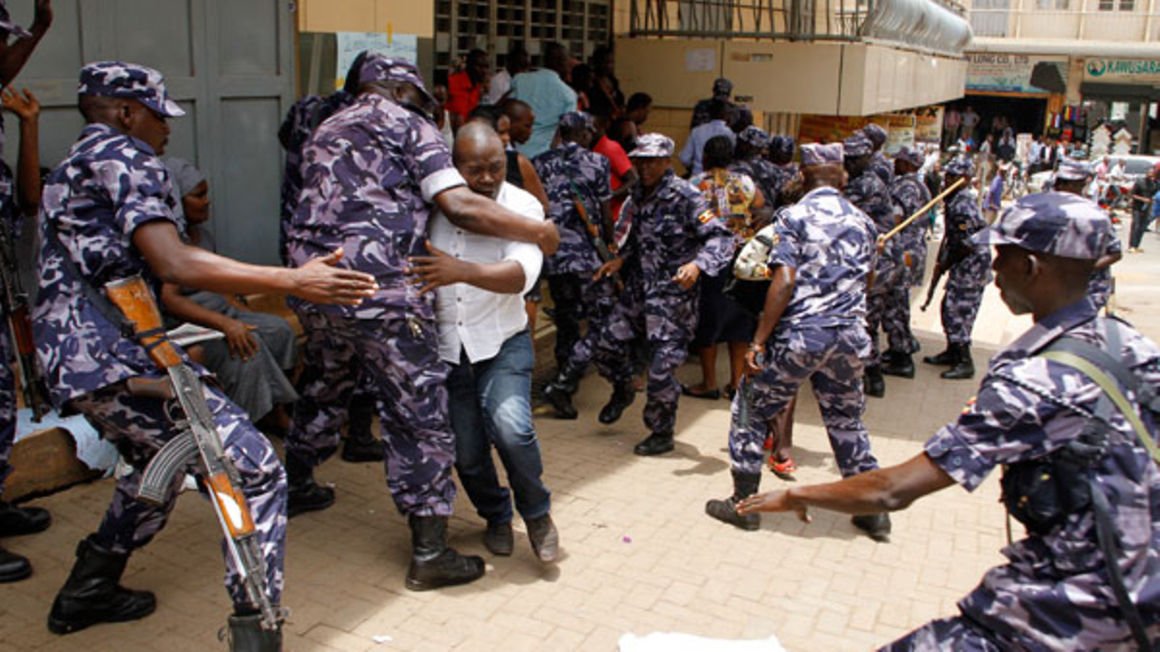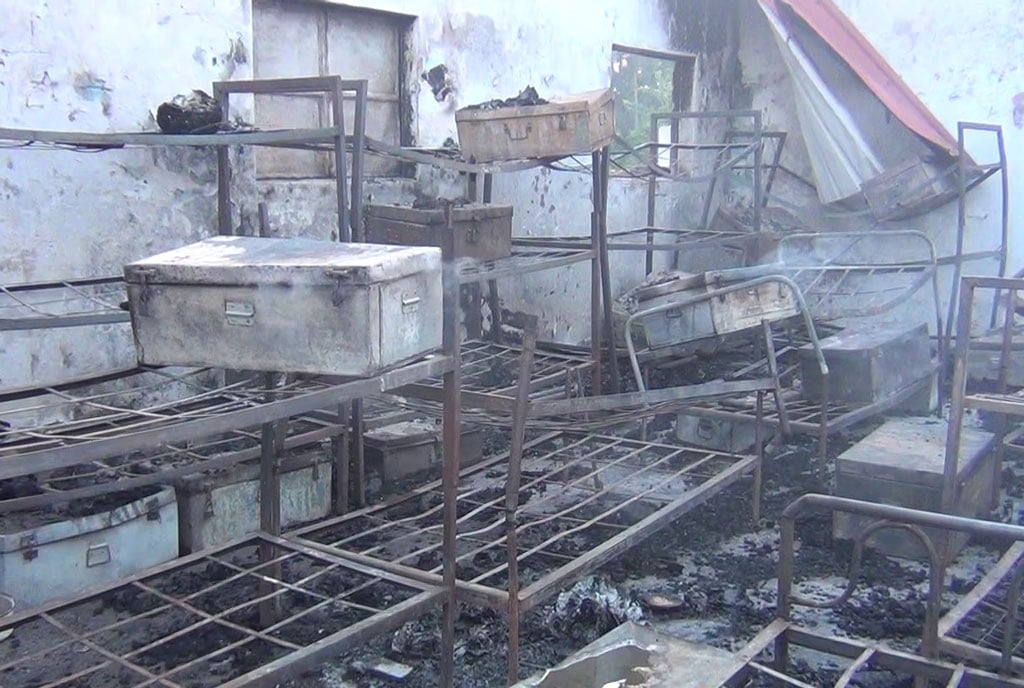New guidelines for police are redundant

Intervention. Police officers arrest traders who were demonstrating at Nalule arcade in Nakasero, Kampala, on April 8, 2019. Security operatives in Uganda have often been associated with human rights violation. PHOTO/ABUBAKER LUBOWA
What you need to know:
The issue: Police actions
Our view: Already, there are several laws that govern and regulate the decent conduct of the Uganda Police Force, including the Constitution of Uganda, the Police Act, and the Uganda Police Standing Orders, among others.
The graphic cover page picture of military police arresting a protester and brutally cramming him under seats of a police patrol pick-up seats, and shoving a club between his legs, is a telling metaphor of heinous torture Ugandans undergo at the hands of police and other State security agencies. [See Daily Monitor, October 27, 2021].
Such display of barbarity knocks down the image of the Uganda Police Force as enforcers of law and order. And here is why.
Foremost, the police are a civil Force. Second, they are tasked with providing safety and security to all Ugandans; protecting their life and property; preserving law and order; preventing and detecting crime. In their execution of these mandates, the police cooperates with both civilian authority and other security organs established under the Constitution.
In sum, the Police as law enforcers exist to ensure that everyone, including the Force itself, follow the law at every step. But these acts of brutality cast the police as common criminals and law breakers.
The police may, in this instant case, say the club and gun-wielding goons are from the military. Without a doubt, the insertion of other security agencies and operatives into regular police work subverts police roles.
The law is clear that army is tasked with protecting the territorial boundaries of Uganda, and only intervenes in domestic affairs on request of the police, and under command of the police. So the police cannot run away from taking the lead in guaranteeing prevention, detection of crime and maintenance of law and order within the country.
Commendably, the order by Inspector General of Police Martins Okoth-Ochola to police to stop mistreating protesters and use only “non-lethal weapons” or firearms in police-led operations, is the right thing to do. (See ‘Ochola to police: Stop mistreating protesters’ (Daily Monitor, October 27).
But such unpleasant and offensive acts won’t just go away because the IGP has issued a 17-page booklet of ‘new guidelines’ to the police.
Already, there are several laws which govern and regulate decent conduct of the Uganda Police Force, including the Constitution of Uganda, the Police Act, and the Uganda Police Standing Orders, among others.
It is clearly surplus to issue any more ‘new guidelines’ that are already amply covered under our main laws. What IGP and team need to demand is inviolable place and role of the Force in maintaining law and order in the country without intrusion and infringement by other security agencies and acting within the rules of reasonable force and guided by proportionality to protect human life, property, and human dignity.




